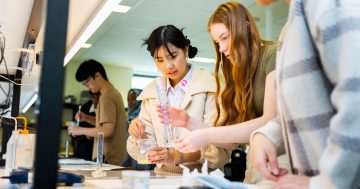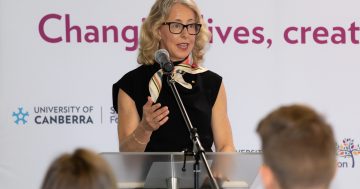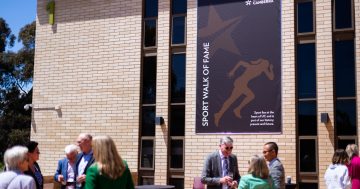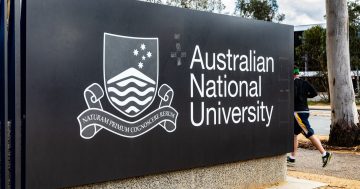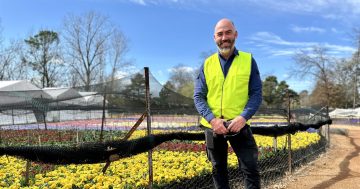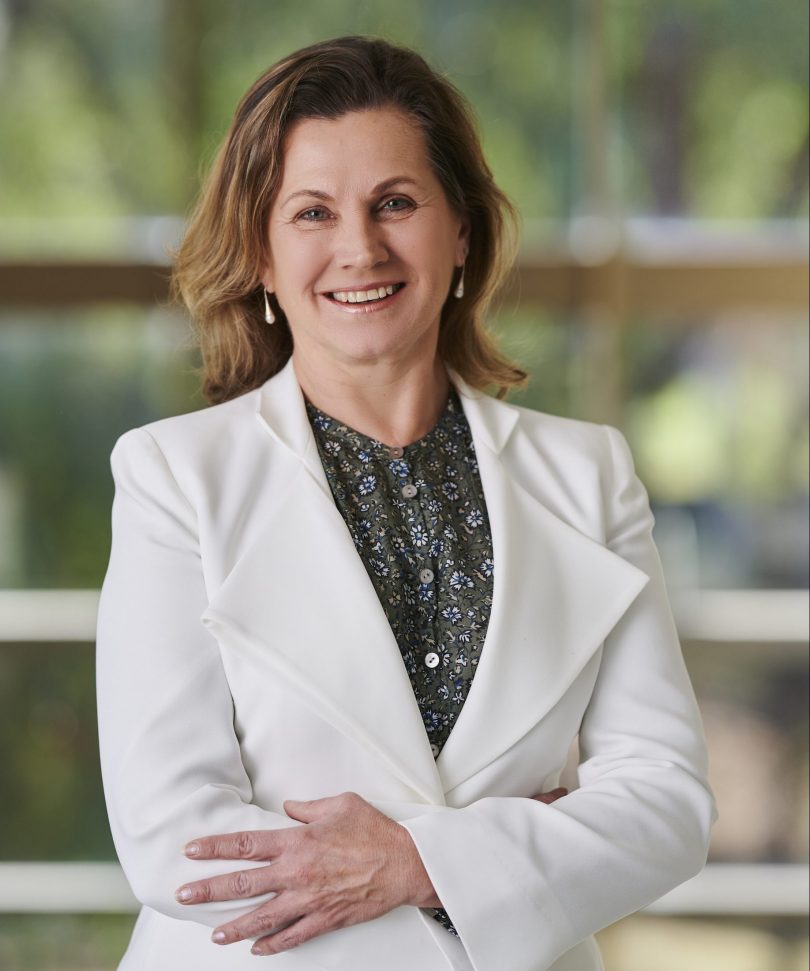
Belinda Robinson, vice-president of the University of Canberra’s relations and strategy, is seeing many positive signs that students are adapting to completing their studies remotely during COVID-19. Photo: Supplied.
Stay connected and just keep learning is the message from University of Canberra’s former vice-chancellor, Belinda Robinson, to current students and those in their final year of school, as secondary schools and universities respond to the COVID-19 pandemic.
Ms Robinson has just finished her tenure as vice-chancellor at UC and is now vice-president of the university’s relations and strategy. She told Region Media she is already seeing many positive signs that students are adapting to completing their university studies or final year of high school remotely.
“Our student body has transitioned to the online environment really well and we’re providing a lot of support, especially with how technology has advanced to allow staff to bring a very personalised experience to students,” she said. “Our academics are also able to identify when students might be struggling to allow for early intervention.”
This week, the federal government decreed that current year 12 students will not need to repeat their final year and will have the opportunity to receive either the ACT Senior Secondary Certificate or an Australian Tertiary Admission Rank (ATAR).
In Canberra, ACT Minister for Education and Early Childhood Development Yvette Berry said the system uses results from school-based assessment in both year 11 and year 12.
“Assessment schedules and types are being modified to reflect the circumstances created by our response to COVID-19,” she said. “Public colleges are working hard to ensure no student is disadvantaged.”
Students will be able to apply to study at the Australian National University in 2021 based on their year 11 results. The change to admissions means they won’t need to rely on their 2020 results to qualify to study at ANU next year.
Ms Robinson said the starting point for educators is to minimise the disruption of studies.
“Once upon a time when people thought about online teaching, they thought it would be an academic lecturing to an empty classroom, but the way online technology has developed has meant it can, in fact, deliver a really rich, multilayered and personalised experience for students.
“Our first fully online classes at UC don’t start until 14 April, so we don’t know how this is going to go yet, but the pilot programs and feedback from students have been very positive.
“Our staff have really stepped up to deliver an online campus within a month, but students have also worked so well with us to ensure they get the best possible experience.”

Students at the University of Canberra during orientation week. Photo: Supplied.
Passionate about the power of higher education, Ms Robinson is also concerned how year 12 students are experiencing their final year of secondary schooling. She reminded them that a good ATAR was not the only component of entry to university.
“One of the key points is that we recognise what an unprecedented time this must be for all year 12 students. They should not add to their stress by worrying about entry to university.”
Ms Robinson added that additional pathways to university include student assessment recommendations, portfolios and UC College, which is looking to offer enabling programs during the summer for students.
“If someone in year 12 wants to go to university, they shouldn’t add university entry to their stress level,” she said. “Flexibility is the key here and we will be doing everything we possibly can to support those students in year 12 who want to come to university.
“In the context of what’s happening with COVID-19, we will definitely be looking to scale up our pathways into university so students in year 12, or anyone who is looking to upskill or change careers because they are now unemployed, will have an opportunity to do so.”
All university students have been impacted this year, with end of semester exams being delayed and course practical components being moved to later in 2020. Many students are also facing financial distress from being unable to pay loans or having lost their part-time job that helps pay accommodation fees.
UC’s Student Empowerment Fund, which provides emergency financial aid to students, has received more than $16,500 in donations. The Canberra Relief Network and UC eXperience teams have also partnered to bring care packages full of essential food and hygiene items to students in need.
Ms Robinson’s best advice was for students to take advantage of the technology available to them.
“Let’s just keep learning and keep staying connected, especially in times like this.”












